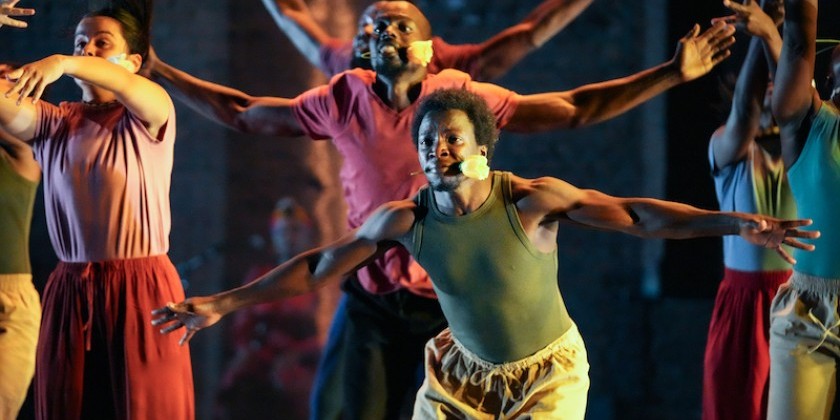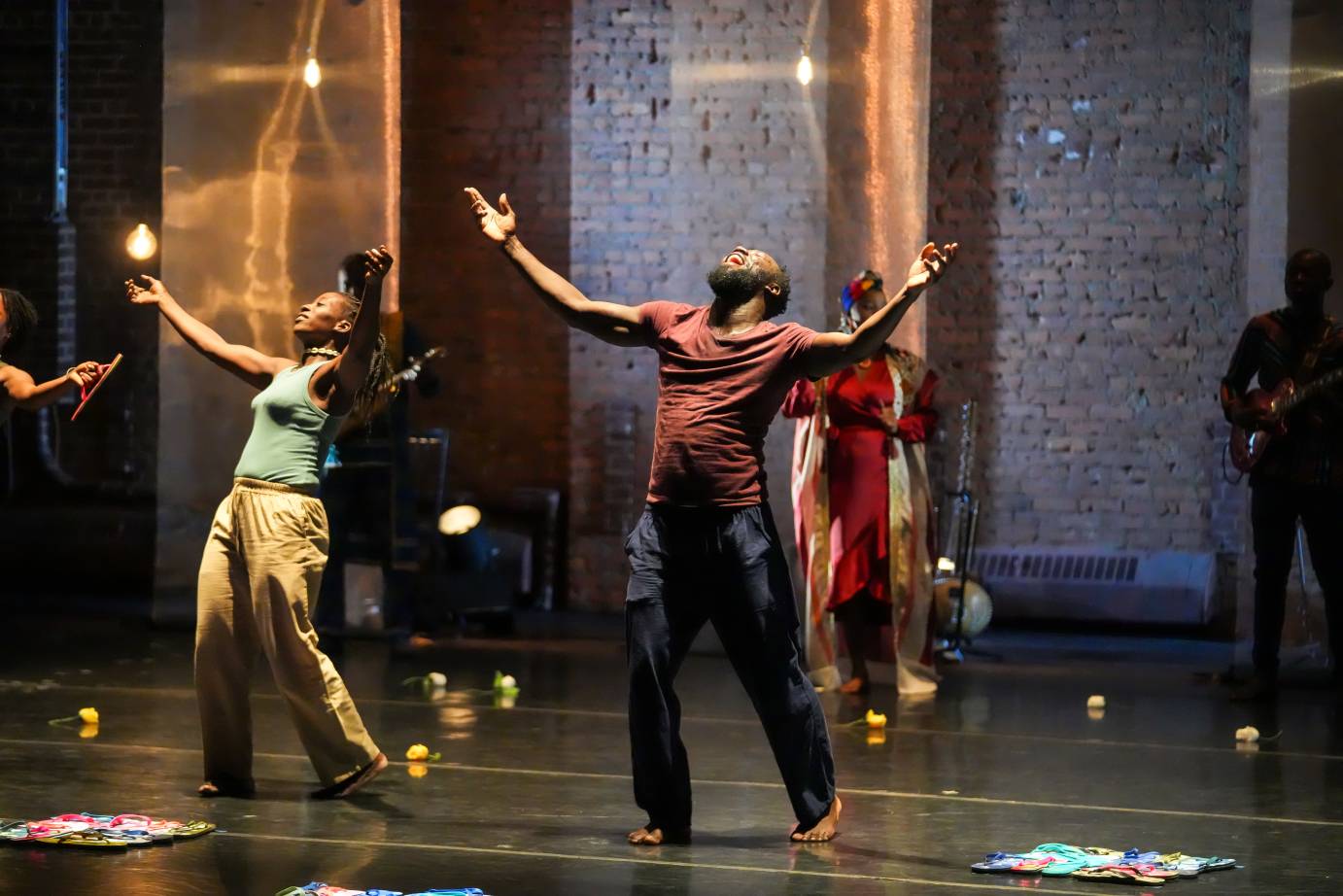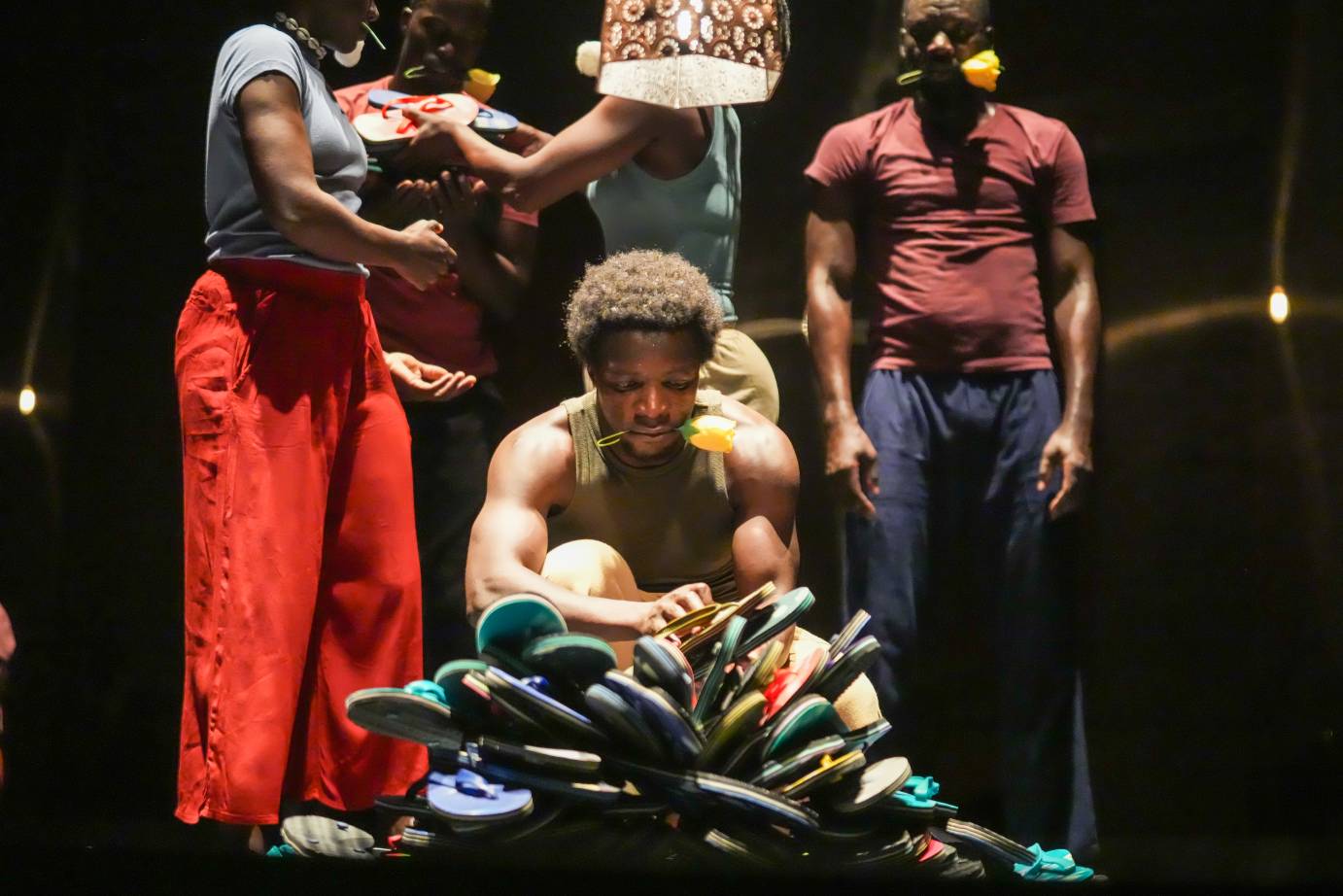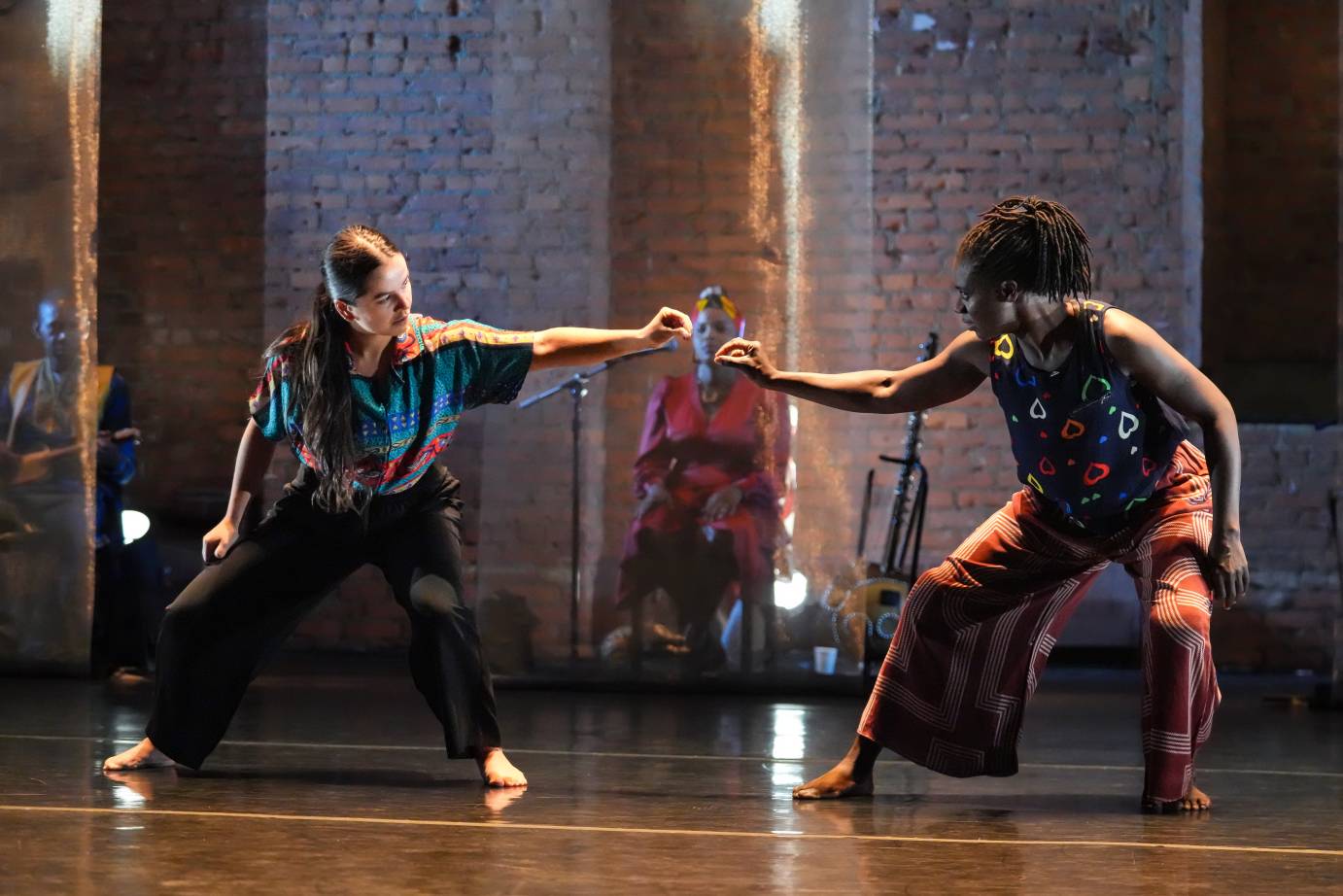IMPRESSIONS: Olivier Tarpaga Dance Project in "Once the dust settles, flowers bloom" at The Joyce Theater

WHAT: Once the dust settles, flowers bloom
WHO: Olivier Tarpaga Dance Project
Concept, Direction & Choreography: Olivier Tarpaga
Creation & Performance: Ousséni Dabaré, Joannie Christie Dossou, Aicha Kaboré, Jean Robert Koudogbo-Kiki, Michael Nana, Sofia Nmili, Sylvie Sanou
Music Composition: Olivier Tarpaga; composed in collaboration with & performed by Issouf Dembélé (drums), Boubacar Djiga (djeli ngoni), Seydou Koïta (acoustic & bass guitars), Wassa Kouyaté (kora & lead vocal), and Saidou Sangare (electric & bass guitars)
WHERE: The Joyce Theater
WHEN: October 3 - 8, 2023
Once the dust settles, flowers bloom recounts the warring history of Burkina Faso, choreographer Olivier Tarpaga’s native land, a former colony of France. Several coups, two in 2022, tore the country apart resulting in cycles of violence and the massacre of innocents.
A despondent woman dressed in red traditional faso danfani cloth slumps beneath a bronze-colored lantern (representing home) hanging from the rafters of The Joyce Theater. Portraying refugees, women and men simply attired, trickle onto the stage, carrying bundles close to their chests. The group forms a clump and with mincing, clipped steps traverse from place-to-place fleeing potential captors. They dance to syncopated rhythms, and sweetly melodic tunes performed by five musicians situated upstage behind strips of translucent floor to ceiling scrim. The bronze billowing fabric recalls the topography of the Sahel region, Tarpaga’s ancestral homeland. Tarpaga, credited as composer with the musicians, is Princeton University’s director of the African Music Ensembles.

In bursts without warning, the barefoot refugees throw their bundles into the air. Multi-colored flip flops, the simple foot attire common to the populace, rain onto center stage. A growing mound resembles the brilliant shards of mosaics. Do the flip flops belong to the fleeing refugees? Without shoes how far can they run? Or, does footwear represent the people killed by war?
The first thirty minutes of the dance expresses a captivating swirl of images. Reels of slashing, roiling movement of combat and death, and scenes of insouciant defiance hold the viewer in their grip. Unable to escape, the dancers are caught in terror. The woman we first viewed beneath the lantern (her safe place) is hauled across the stage and pitched to the ground by a man who continually kicks and abuses her. He throws himself on top of her body, violating her with slow, agonizing thrusts. A jihadist’s black and gray flag, held in his mouth, ripples menacingly as he turns in place. His knee slices in and out, his feet stamp, he kneels, pounds the flagpole on the ground, then tosses the flag to others to continue the melee.

Dancers form a line upstage and fall, dying one by one. Their inert bodies are impersonally examined by a curious bystander. Donning a white mourning sheath, one woman convulses as others raise clenched fists. Citizens march forward shouting words of protest. All the while, the musicians clap their hands in insistent rhythm. Seated near the lantern, another villager records the atrocity, scribbling an account on the ground with one licked finger.
The dance continues, but the devastating point has been made. Innocents pay the price for despotic governments and terrorists. For a numbing thirty more minutes, biting scenes of the exigencies of war, all relayed at the same fever pitch, implacably press on.

Finally, a change. The colorful pile of flip flops is rearranged into a step stone pattern offering a path forward. White roses, a metaphor for forgiveness and reconciliation, are distributed to the dancers who hold the stems in their mouths. On the hushed stage dancers kneel, and a lone woman, her face and head covered by a scarf, wails in grief.












